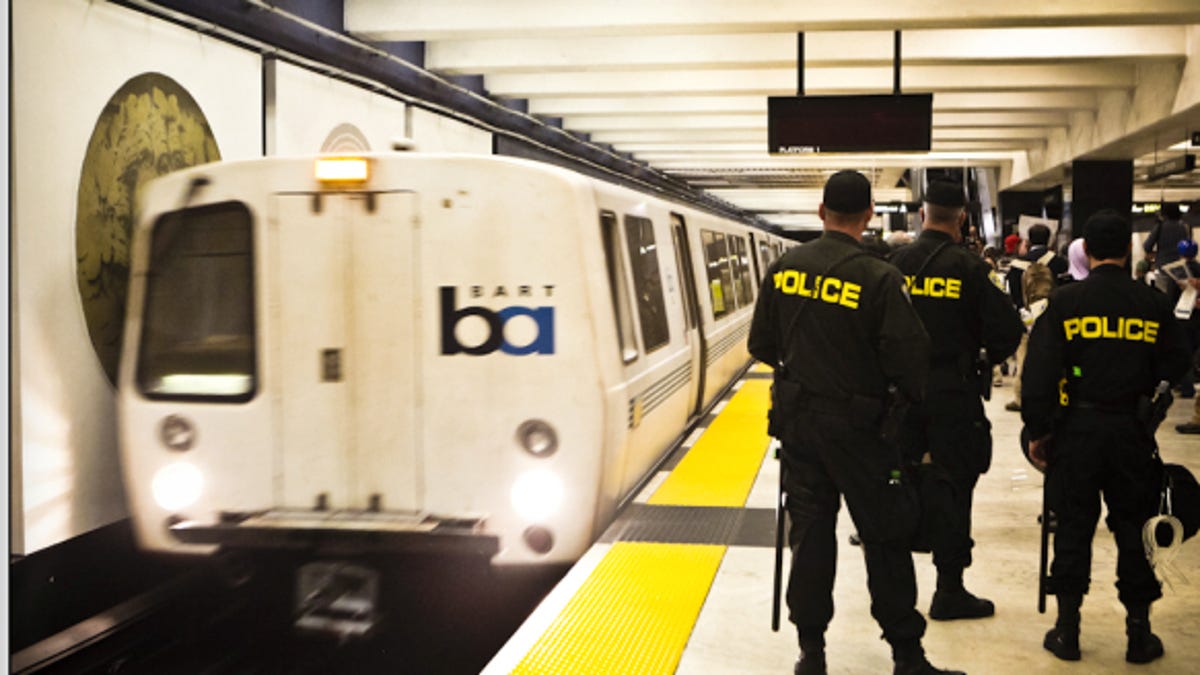SF subway sets rules for cell service shutdowns
BART can shut down cell service only in the face of unlawful activity that threatens safety of people, property damage or subway service disruption.

The San Francisco Bay Area Transit District adopted a policy today that bars officials from interrupting cell service in subway stations except in "extraordinary circumstances."
The policy, which is believed to be the first policy governing intentional cell service disruption in subways, comes in response to a public backlash over BART for shutting off cell service to head off a protest this summer.
Under the new policy, BART may temporarily interrupt cell service only when it determines that there is "strong evidence of imminent unlawful activity that threatens the safety" of passengers, employees and the public, or if there is a threat of destruction of property or a substantial disruption of public transit services.
Examples of "extraordinary circumstances" would include someone using a cell phone as a bomb, in a hostage situation or using it to plan property destruction or transit service disruptions, according to the policy (PDF).
The policy appears to be rather broad and arguably would support the cell service shutdown this summer. BART officials said they made the decision to shut the service because of the potential for harm to passengers during a protest on crowded subway stations. But critics argued that it violated free speech rights, and protesters then organized numerous subsequent protests to express their opposition to the BART action.
At a Board meeting in August, BART board member Lynette Sweet said a cell service shutdown should be done only in a "dire emergency."
"The First Amendment and the right to have a communications channel are what people are looking for because it's part of this democratic society we live in," she said at the time. "We can't sit back like Big Brother and say we don't like the message."
The cell service outage was designed to thwart a protest over the fatal shooting of Charles Blair Hill, who BART police said went after them with a knife before an officer shot him on July 3. Protesters were also angry over the fatal shooting of Oscar Grant by BART police in January 2009.
This new rules would not have affect any probe by the U.S. Federal Communications Commission of the cell service shut down.

